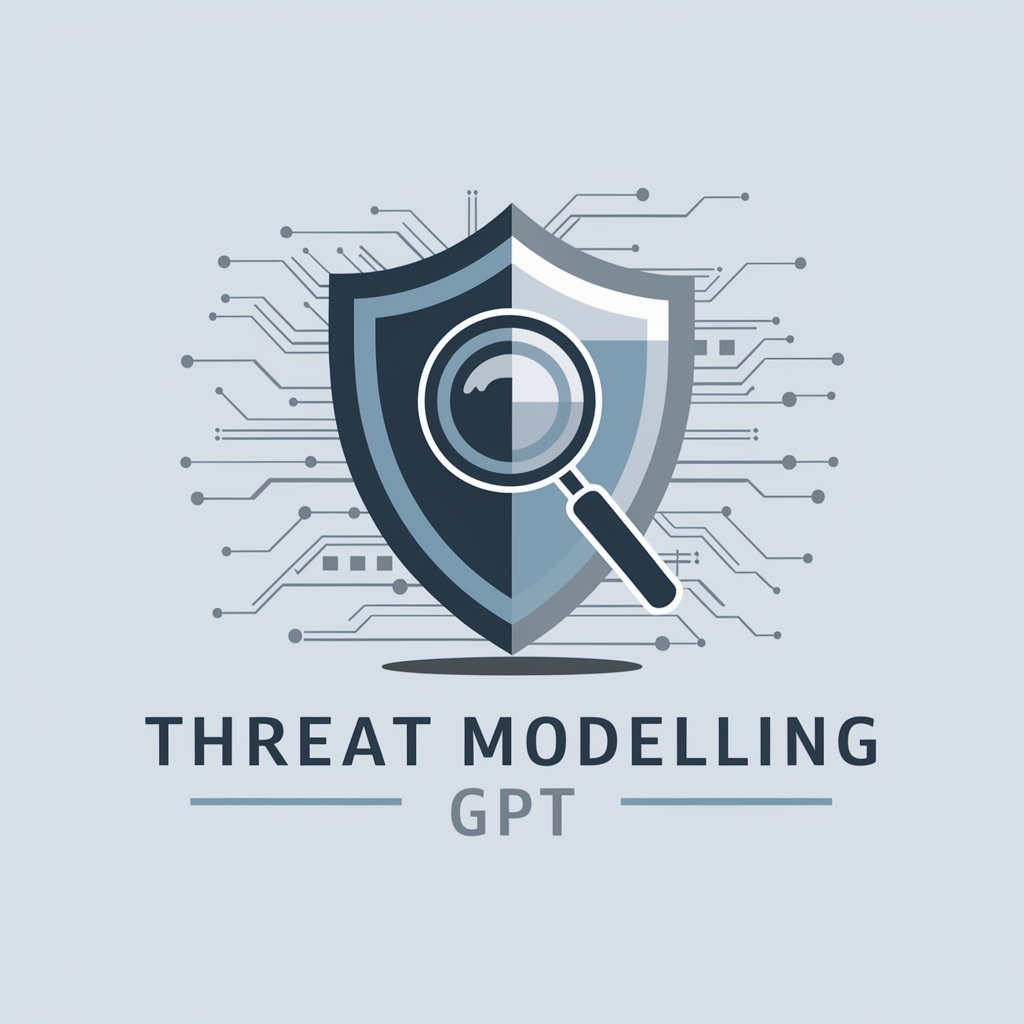8 GPTs for Cybersecurity Planning Powered by AI for Free of 2026
AI GPTs for Cybersecurity Planning are advanced tools that leverage the power of Generative Pre-trained Transformers to offer specialized solutions in the realm of cybersecurity. These AI models are designed to understand, interpret, and generate human-like text based on the input they receive, making them invaluable for tasks that require deep knowledge of cybersecurity principles, threat analysis, and strategic planning. By utilizing AI GPTs, organizations can enhance their cybersecurity posture with predictive analytics, threat modeling, and incident response strategies tailored to their specific needs.
Top 8 GPTs for Cybersecurity Planning are: Cyber Security CISO Assistant,Threat Modelling,Security Advisor,NIST CSF Azure Navigator,Winternet - (Project Proposals),CIO Tech Roadmap Strategist 🛣️💻,Cyber SME,CTO Cofounder
Cyber Security CISO Assistant
Empowering CISOs with AI-Powered Cybersecurity Expertise

Threat Modelling
AI-Powered Security Insight and Strategy

Security Advisor
Navigating Cybersecurity with AI Expertise

NIST CSF Azure Navigator
Aligning Azure with NIST CSF, powered by AI

Winternet - (Project Proposals)
Your AI-Powered Proposal Partner

CIO Tech Roadmap Strategist 🛣️💻
Strategize, Align, and Innovate with AI

Cyber SME
Empowering SMEs with AI-driven Cybersecurity Solutions

CTO Cofounder
Empowering tech decisions with AI guidance.

Essential Qualities of AI GPTs in Cybersecurity
AI GPTs tools in cybersecurity are distinguished by their adaptability, enabling them to perform a wide range of functions from basic threat assessments to complex predictive analytics. Key features include natural language understanding for analyzing cybersecurity documentation, technical support through chatbots, web searching capabilities for the latest threat intelligence, image creation for educational purposes, and data analysis for identifying potential security vulnerabilities. These capabilities ensure that GPTs can be customized to meet the evolving needs of cybersecurity planning.
Who Benefits from Cybersecurity AI GPTs?
The primary beneficiaries of AI GPTs for Cybersecurity Planning include cybersecurity novices seeking foundational knowledge, developers integrating AI into security tools, and professionals in need of advanced threat analysis and strategic planning capabilities. These tools are designed to be accessible to users without programming skills, offering intuitive interfaces and guided assistance, while also providing robust customization options for experts with technical backgrounds.
Try Our other AI GPTs tools for Free
Meditative Practice
Discover how AI GPTs for Meditative Practice can transform your mindfulness journey with personalized guidance and content.
Extraterrestrial Contact
Explore AI GPTs for Extraterrestrial Contact: cutting-edge tools designed to enhance our search for and potential communication with extraterrestrial intelligence, offering advanced data analysis, language simulation, and more.
Self-Exploration
Discover how AI GPTs for Self-Exploration can transform your personal growth journey with tailored insights, interactive dialogues, and a supportive digital environment.
Protocol Learning
Discover how AI GPTs for Protocol Learning can transform your approach to protocols, offering tailored insights, streamlined compliance, and enhanced productivity.
Dietary Guidance
Discover personalized dietary guidance at your fingertips with AI GPT tools, designed to offer tailored nutritional advice and meal planning for healthier living.
Entertainment Design
Discover how AI GPTs are transforming Entertainment Design with smart, adaptable tools designed to enhance creativity and streamline production processes.
Expanding Horizons with AI in Cybersecurity
AI GPTs redefine cybersecurity solutions by providing customizable, AI-driven support that enhances threat intelligence, risk analysis, and strategic planning. Their user-friendly interfaces and integration capabilities make them a versatile asset for organizations looking to bolster their cybersecurity measures. As these tools continue to evolve, they promise to unlock new potentials in cybersecurity planning and execution.
Frequently Asked Questions
What are AI GPTs for Cybersecurity Planning?
AI GPTs for Cybersecurity Planning are artificial intelligence tools designed to assist in the creation, analysis, and execution of cybersecurity strategies, using natural language processing to provide insights, predictions, and solutions.
How do AI GPTs improve cybersecurity?
They enhance cybersecurity through predictive analytics, automated threat detection, and providing strategic recommendations, thereby improving an organization's ability to anticipate and mitigate cyber threats.
Can non-technical users utilize AI GPTs for cybersecurity?
Yes, these tools are designed with user-friendly interfaces that allow non-technical users to benefit from AI-driven insights without requiring programming knowledge.
What customization options are available for technical users?
Technical users can access advanced features, integrate the AI with existing systems, and tailor the tool's responses and analyses to fit specific cybersecurity needs.
How do AI GPTs stay updated on the latest threats?
AI GPTs continuously learn from a vast array of sources, including the latest cybersecurity research, threat intelligence feeds, and real-world incident reports, ensuring they remain informed about emerging threats.
Are AI GPTs for cybersecurity planning capable of replacing human experts?
While AI GPTs provide valuable support and can perform many tasks, they complement rather than replace human experts, who are essential for strategic decision-making and complex analysis.
Can these tools predict future cybersecurity threats?
AI GPTs can analyze trends and patterns to make informed predictions about potential future threats, but their predictive accuracy depends on the quality and quantity of data they are trained on.
How can organizations integrate AI GPTs into their cybersecurity strategies?
Organizations can integrate AI GPTs by incorporating them into their threat intelligence gathering, risk analysis procedures, incident response plans, and by using them to automate routine security tasks.